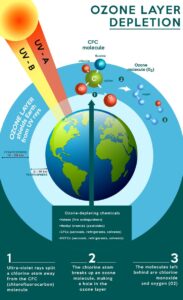
As the world faces the challenges of climate change and limited fossil fuel resources, the need for sustainable and clean energy solutions becomes increasingly critical. Renewable energy offers a promising pathway to a greener and more sustainable future. In this blog, we will explore the marvels of renewable energy and the positive impact it can have on our planet.
- What is Renewable Energy?
Renewable energy refers to energy sources that are naturally replenished and can be harnessed without depleting finite resources. These sources include sunlight (solar energy), wind (wind energy), water (hydropower), geothermal heat, and biomass. Unlike fossil fuels, renewable energy options produce little to no greenhouse gas emissions, making them environmentally friendly alternatives.
- Solar Energy: Harnessing the Power of the Sun
Solar energy is one of the most abundant and widely accessible renewable energy sources. Solar panels, made of photovoltaic cells, convert sunlight into electricity. With advancements in solar technology and declining costs, solar power is becoming a viable and cost-effective energy solution for homes, businesses, and communities.
- Wind Energy: Capturing the Wind’s Potential
Wind energy harnesses the power of wind to generate electricity. Wind turbines, positioned in windy areas, convert kinetic energy from the wind into mechanical energy, which is then converted into electrical energy. Wind power is a renewable, clean, and reliable energy source, contributing significantly to global electricity generation.
- Hydropower: Tapping into Water’s Force
Hydropower relies on the movement of water to generate electricity. Large-scale hydropower plants utilize dams and reservoirs to control water flow, while smaller installations use river currents or tidal movements. Hydropower is a longstanding renewable energy source that provides a stable and continuous power supply.
- Geothermal Energy: Tapping into Earth’s Heat
Geothermal energy harnesses the heat from the Earth’s core to generate electricity or provide heating and cooling. Geothermal power plants utilize underground reservoirs of hot water or steam to produce electricity, offering a consistent and reliable source of energy.
- Biomass: Sustainable Energy from Organic Matter
Biomass energy utilizes organic materials such as agricultural waste, wood, and organic matter to produce biofuels and biogas. Biomass can replace fossil fuels in various applications, providing a renewable and carbon-neutral energy option.
- Environmental Benefits and Climate Mitigation
Renewable energy sources play a crucial role in mitigating climate change. By displacing fossil fuels and reducing greenhouse gas emissions, renewable energy helps reduce the harmful impacts of global warming and air pollution.
- Energy Independence and Security
Investing in renewable energy sources enhances energy security by reducing reliance on imported fossil fuels. Many countries are embracing renewable energy to increase their energy independence and stabilize energy costs.
- Job Creation and Economic Growth
The transition to renewable energy creates jobs and economic opportunities in various sectors, from manufacturing and construction to research and development.
Renewable energy offers a ray of hope for a sustainable and cleaner future. With its immense potential to reduce greenhouse gas emissions, combat climate change, and enhance energy security, it represents a crucial step towards a greener planet. Embracing renewable energy technologies, along with continued advancements and policy support, will empower us to safeguard the environment, improve public health, and foster economic growth. As individuals, communities, and nations, we can collectively make a positive impact by embracing renewable energy and embracing the path to a more sustainable and prosperous future.







